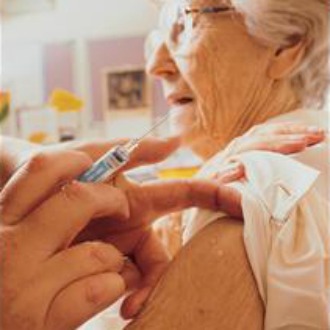Fall in shingles vaccinations ‘could be due to pharmacy flu scheme’

Shingles immunisation coverage has fallen by 3% on last year, which GP leaders have said is a result of patients receiving their flu jabs from pharmacists rather than practices.
Public Health England sent a circular to practices saying that the ‘one-stop shop’, of giving flu and shingle jabs at the same time, was working ‘very well’.
But it added that shingles vaccination ‘coverage in the routine, 70-year-old cohort was down by almost 3% on the previous year’.
It called on GPs to ‘continue to offer’ the shingles vaccine to eligible patients while ‘immunisation opportunities coincide with the continued delivery of the influenza vaccination programme’.
However, GP leaders pointed out that fewer patients were getting their flu vaccinations from practices due to the new scheme that allows pharmacists to administer them, which has contributed to the decrease in shingles coverage.
As part of the shingles programme, GPs offer vaccinations to patients aged 70 years and 78 years as of 1 September 2015.
In advice sent out in a recent circular, under the heading ‘Shingles – are you running a one-stop shop? A call for arms’, PHE acknowledged that practices often offer the shingles vaccines at the same time as the flu vaccine.
It said: ‘We know that GP surgeries are offering the shingles vaccine to eligible patients when they visit for their flu jab. Whilst this works very well… early indications are that coverage has fallen this year compared with previous years.’
It added: ‘It is important to ensure all eligible adults who can benefit from the vaccine do not miss out, particularly over the coming weeks while immunisation opportunities coincide with the continued delivery of the influenza vaccination programme.’
But Dr Peter Swinyard, chair of the Family Doctors Association, said GPs had lost out on vaccinating some elderly patients because of the new pharmacy flu scheme.
Dr Swinyard said: ‘We’ve lost quite a few this year who we would normally have encouraged to have the shingles jab at the same time, because of this dilution of the primary care flu scheme and people going off to the pharmacies.
‘GPs do the shingles jab opportunistically as there isn’t enough money in the pot to go round ringing everyone up and saying please come in for your shingles jab.’
Dr Swinyard added: ‘Quite honestly it’s on the “to-do” list but it’s not actually right up at the top of my list. I recognise entirely how important it is for patients to get the jab, but also it’s very difficult to persuade some people to have the shingles jab.’
Dr Andrew Green, chair of the GPC’s clinical and prescribing subcommittee, said the fall in uptake was ‘an inevitable consequence of practices struggling under workload pressures’ and that GPs did not have enough resources to do any more.
Dr Green said: ‘The GPC has warned for some time that UK general practice if full and cannot take on any more work, but rather than being offered help, our hands are being tied behind our backs by reductions in funding and increased red-tape.’
The latest immunisation problem comes as the GPC has warned the pharmacy flu scheme may have cost general practice some £4m this year, without the intended increase uptake among at-risk groups.
An NHS England spokesman said: ’We would expect GPs and pharmacies to work together to offer the best opportunities to provide both the flu and shingles vaccinations to all eligible patients.
’The new community pharmacy service does extend choice for patients wishing to get their flu vaccination in an accessible and convenient location, but this should not in any way hamper the shingles vaccine being provided alongside the influenza vaccination programme – these are all particularly important over winter when we are trying to encourage as many people as possible to have the appropriate jab.’
Pulse October survey
Take our July 2025 survey to potentially win £1.000 worth of tokens

Visit Pulse Reference for details on 140 symptoms, including easily searchable symptoms and categories, offering you a free platform to check symptoms and receive potential diagnoses during consultations.











